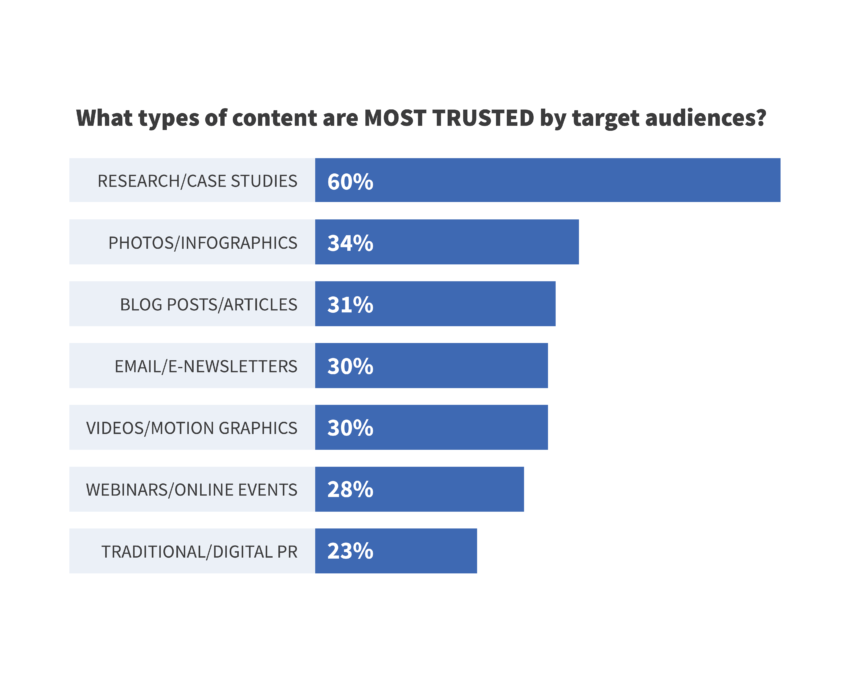Do I trust you? How do I build trust? What types of content do people trust?
Building trust is a critical part of any marketing strategy and is especially important when creating a content marketing strategy.
The Ascend2 Content Marketing Engagement Survey asked marketing professionals what types of content are most trusted by target audiences? At the top of the list, by a wide margin, is research and case studies.
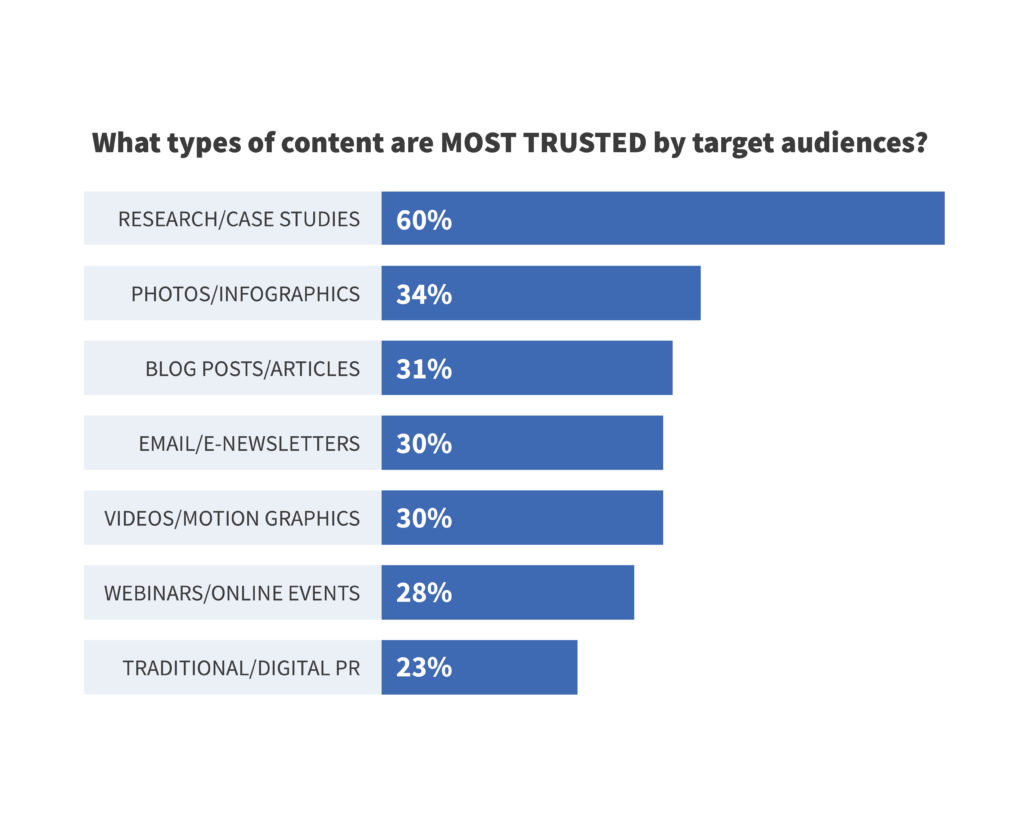
What do we learn from this data on how to build trust with our target audience?
- When it comes to content, having solid evidence to support a claim is extremely important. That is why a 60% majority of marketing professionals report that research and case studies are the most trusted content type by target audiences.
- Always quantify your claims. Opinions are nice, but facts sell. Don’t tell your audience your opinion, show them research from their peers that provides facts that will guide them to a decision.
- High-quality research will engage your target audience. Your audience will engage in content that they trust. They will read it, share it, and use it. And the more they read, share, and use your content, the more they will trust you.
The goal of a content marketing strategy is to provide helpful insights that ultimately move a target audience through the decision-making process to the desired action.
But what are the strategies and tactics behind creating engaging content that drives profitable decisions from your audience?
To help you answer this question, Ascend2 and our Research Partners fielded the Content Marketing Engagement Survey, and 301 marketing professionals responded to the survey.
The Content Marketing Engagement Survey Summary Report provides insight into difficult questions like:
- What are the primary objectives for a content marketing engagement strategy to achieve?
- How many companies are Best-in-Class at content marketing engagement?
- What are the most critical challenges to the success of a content marketing engagement strategy?
- How are budgets changing for content marketing?
- How do you prioritize objectives versus challenges as you build a content marketing engagement strategy?
- What types of content are most trusted by target audiences?
- What are the most important metrics for measuring content marketing engagement?
- What best describes the direct result of increasing content marketing engagement?
- What combination of resources (in-house, outsourced to a specialist) are other companies using for content marketing engagement?
Here area few noteworthy findings for the Asend2 research study:
Finding #1: Objectives Versus Challenges
Creating a successful content marketing engagement strategy involves weighing the importance of an objective and how challenging it is to achieve. Objectives that are far more important than challenging, such as increasing customer conversions, are more likely to be included in an engagement strategy.
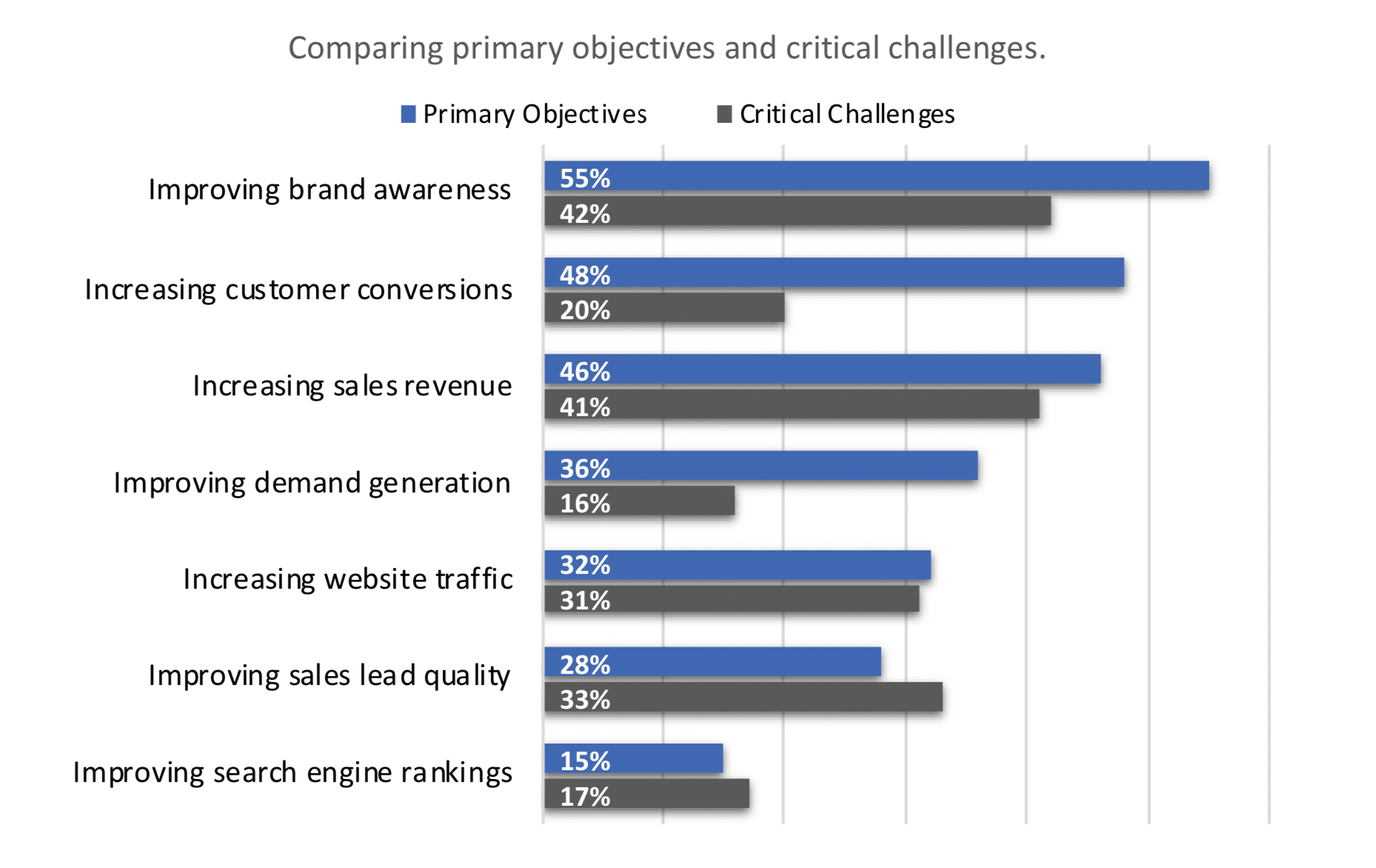
Finding #2: Important Metrics
About half of marketing professionals report that leads generated (51%) and new/returning visitors (50%) are the most important metrics for measuring the effectiveness of a content marketing engagement.
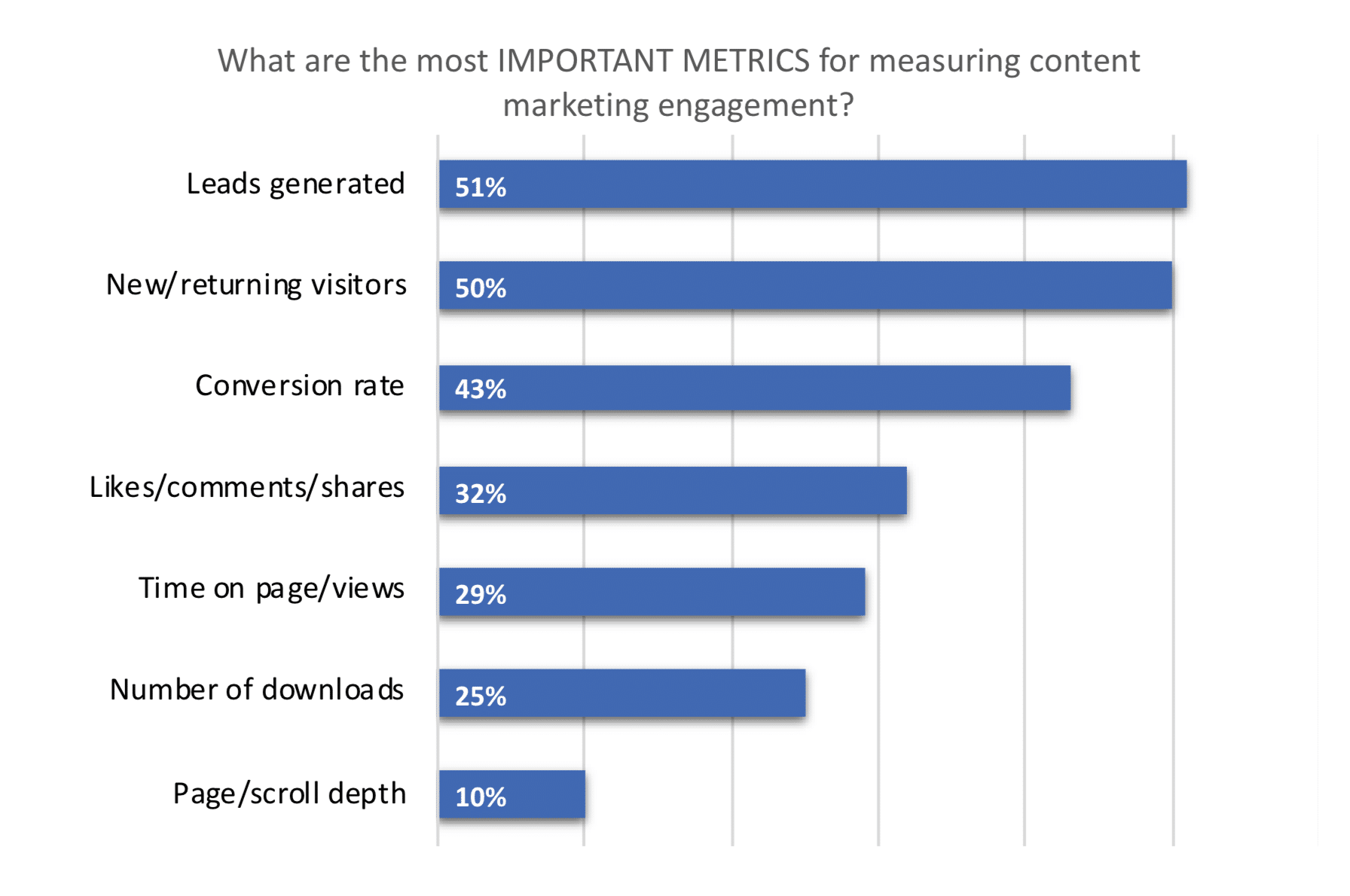
Finding #3: Direct Results Achieved
An increase in content marketing engagement directly resulted in an increase in sales revenue according to a 44% majority of marketing professionals surveyed. Only 6% of marketers report no direct results from increasing content marketing engagement.
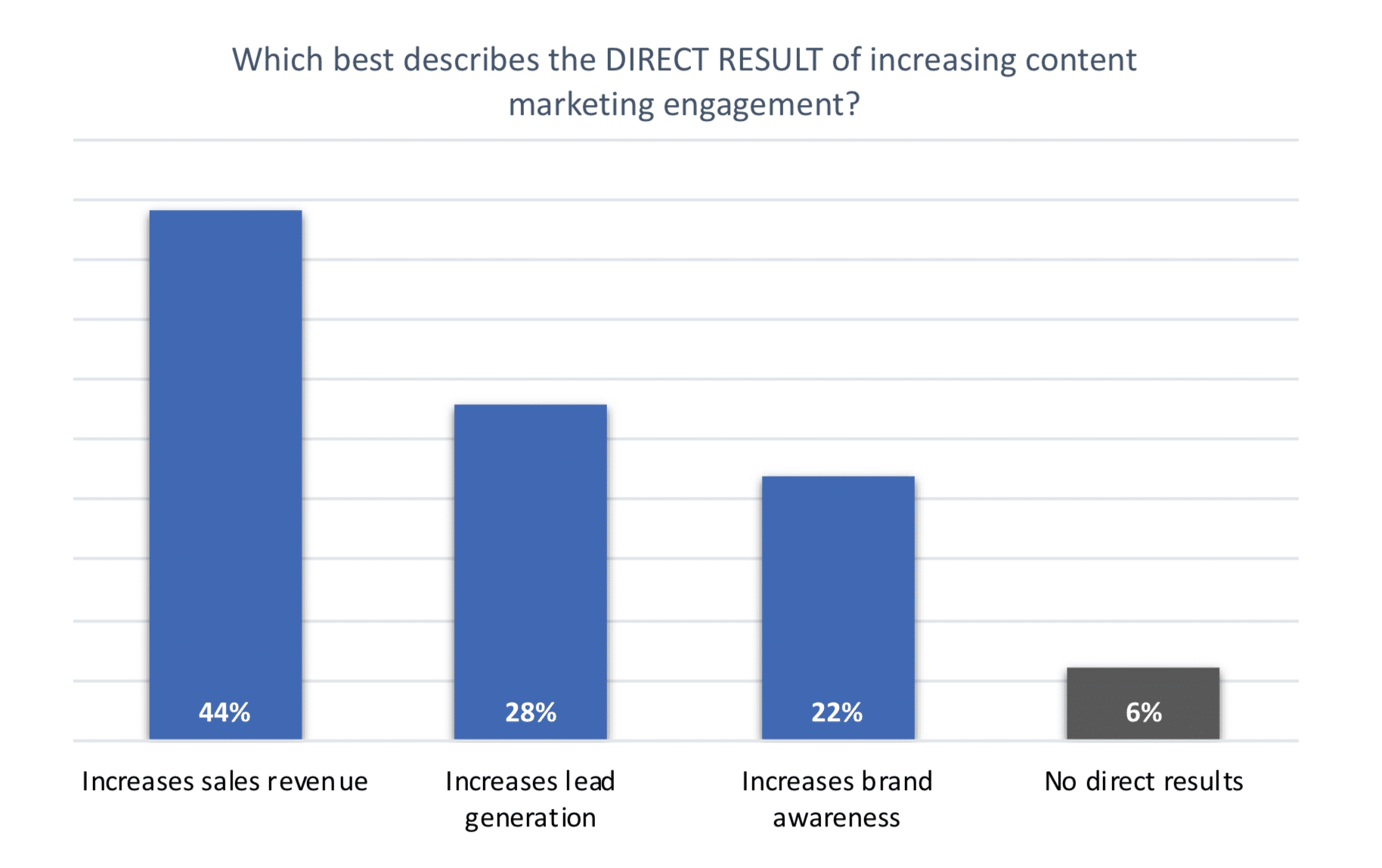
Download the Content Marketing Engagement Survey Summary Reportand put it to work to develop your content marketing strategy.
Read more about content marketing:
7 Rookie Mistakes In Content Marketing And How To Avoid Them

